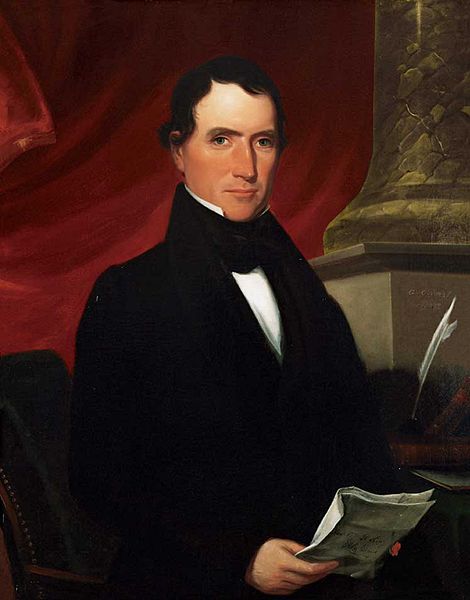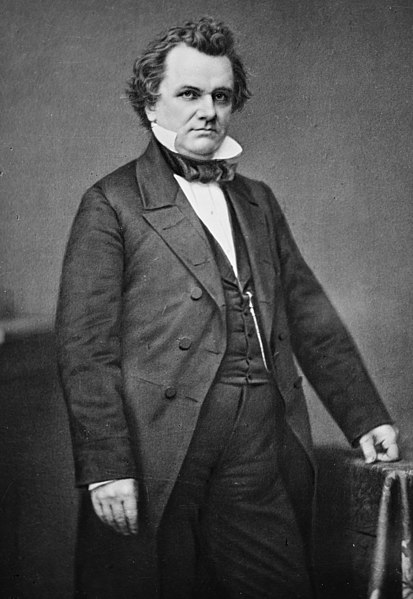33rd United States Congress
The 33rd United States Congress was a meeting of the legislative branch of the United States federal government, consisting of the United States Senate and the United States House of Representatives. It met in Washington, D.C. from March 4, 1853, to March 4, 1855, during the first two years of Franklin Pierce's presidency. During this session, the Kansas–Nebraska Act was passed, an act that soon led to the creation of the Republican Party. The apportionment of seats in the House of Representatives was based on the 1850 United States census. Both chambers had a Democratic majority.
United States Capitol (1846)
President of the Senate William R. King
Senate President pro tempore David R. Atchison
House Speaker Linn Boyd
The Kansas–Nebraska Act of 1854 was a territorial organic act that created the territories of Kansas and Nebraska. It was drafted by Democratic Senator Stephen A. Douglas, passed by the 33rd United States Congress, and signed into law by President Franklin Pierce. Douglas introduced the bill intending to open up new lands to develop and facilitate the construction of a transcontinental railroad. However, the Kansas–Nebraska Act effectively repealed the Missouri Compromise of 1820, stoking national tensions over slavery and contributing to a series of armed conflicts known as "Bleeding Kansas."
Stephen A. Douglas – "The great principle of self-government is at stake, and surely the people of this country are never going to decide that the principle upon which our whole republican system rests is vicious and wrong."
Sam Houston from Texas was one of the few southern opponents of the Kansas–Nebraska Act. In the debate, he urged, "Maintain the Missouri Compromise! Stir not up agitation! Give us peace!"
Alexander Stephens from Georgia – "Nebraska is through the House. I took the reins in my hand, applied the whip and spur, and brought the 'wagon' out at eleven o'clock P.M. Glory enough for one day."
Thomas Hart Benton of Missouri – "What is the excuse for all this turmoil and mischief? We are told it is to keep the question of slavery out of Congress! Great God! It was out of Congress, completely, entirely, and forever out of Congress, unless Congress dragged it in by breaking down the sacred laws which settled it!"








